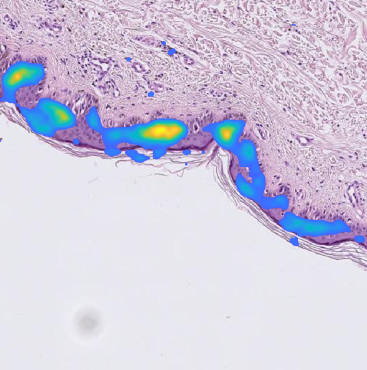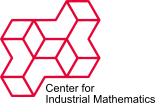SPAplus: Small data problems in digital pathology and measures accompanying the programme
| Working Group: | WG Industrial Mathematics |
| Leadership: | Prof. Dr. Dr. h.c. Peter Maaß ((0421) 218-63801, E-Mail: pmaass@math.uni-bremen.de ) |
| Processor: |
Dr. Lena Hauberg-Lotte
Jose Carlos Gutierrez Perez |
| Funding: | BMBF, Mathematik für Innovationen |
| Project partner: |
Dr. Dennis Trede, Scils, Zweigniederlassung Bremen der Bruker Daltonik GmbH Prof. Dr. Jörg Lücke, Carl von Ossietzky Universität Oldenburg Prof. Dr. Michael Möller, Universität Siegen Dr. Boris Krostitz, Deutsche Bahn AG Prof. Dr. Jörg Kriegsmann, Proteopath GmbH, Trier |
| Time period: | 01.04.2020 - 31.03.2023 |
 Industry and economy name two cross-industry problem areas in connection with Big Data applications and machine learning (ML): On the one hand, the lack of a sufficient number of and, above all, well-trained data analysts is emphasized, and on the other hand, technical applications usually do not have enough data available to train, for example, large neural networks (NN) in a stable manner using deep learning (DL) approaches.
This project therefore aims to work on such a prototypical problem of digital pathology and to analyze and methodically implement mathematically based procedures for data augmentation via neural networks/deep learning.
The WG Technomathematik at University of Bremen coordinates this joint project and is involved on the scientific side with the subproject "Invertable network architectures for data augmentation". Here, invertible network architectures (i-RevNet, learned Mixup) for data augmentation are analyzed and used to expand the database for histopathological applications.
In addition, the measures necessary for the programme-associated activities are coordinated within the framework of the funding priority "Mathematics for Innovations". Innovation Labs and Challenge Workshops are planned, among other things, in order to accelerate the transfer of the project results of all funded projects to industry, society and the public.
Industry and economy name two cross-industry problem areas in connection with Big Data applications and machine learning (ML): On the one hand, the lack of a sufficient number of and, above all, well-trained data analysts is emphasized, and on the other hand, technical applications usually do not have enough data available to train, for example, large neural networks (NN) in a stable manner using deep learning (DL) approaches.
This project therefore aims to work on such a prototypical problem of digital pathology and to analyze and methodically implement mathematically based procedures for data augmentation via neural networks/deep learning.
The WG Technomathematik at University of Bremen coordinates this joint project and is involved on the scientific side with the subproject "Invertable network architectures for data augmentation". Here, invertible network architectures (i-RevNet, learned Mixup) for data augmentation are analyzed and used to expand the database for histopathological applications.
In addition, the measures necessary for the programme-associated activities are coordinated within the framework of the funding priority "Mathematics for Innovations". Innovation Labs and Challenge Workshops are planned, among other things, in order to accelerate the transfer of the project results of all funded projects to industry, society and the public.

